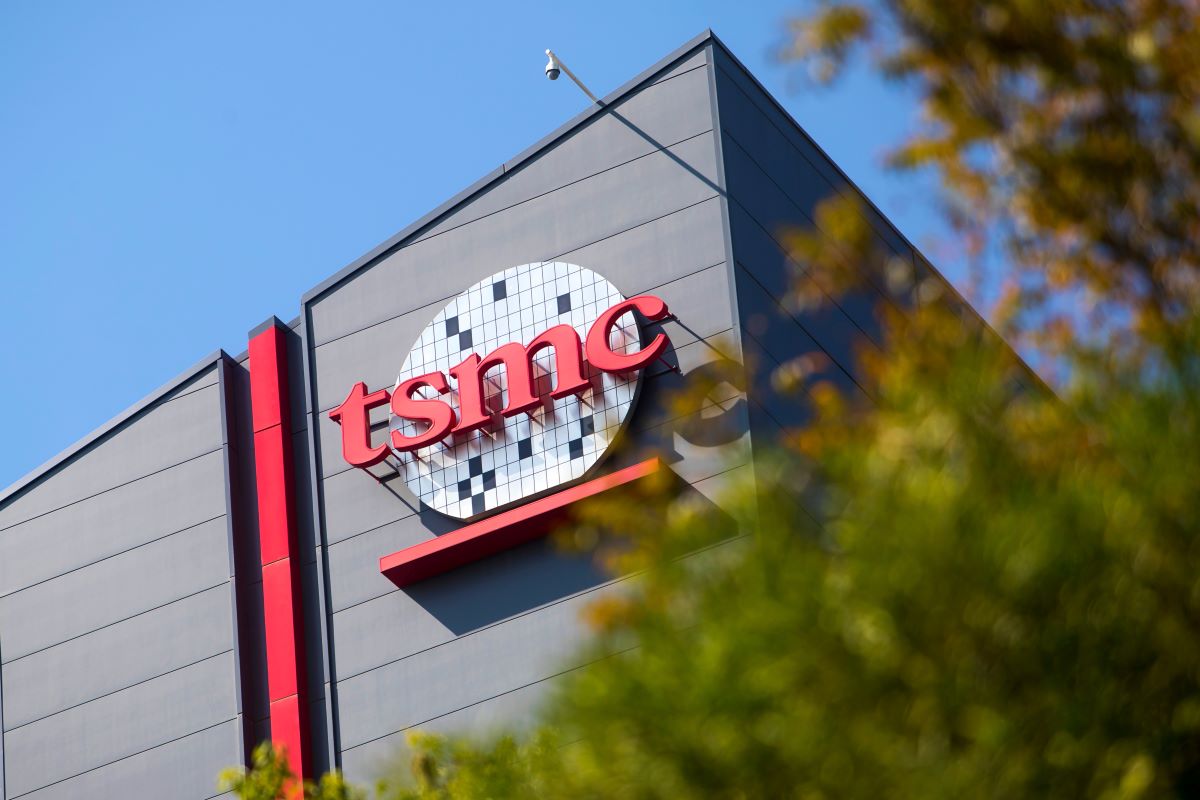Taiwan Semiconductor Manufacturing Company (TSMC), the world’s largest contract chipmaker, has encountered a significant drop in its third-quarter profits for FY23. This dip aligns with the global trend of weakening demand for chips used in smartphones and high-speed computing.
Between July and September of this year, the company’s net profit fell by 24.9% year-on-year to NTD 211 bn ($6.6 bn). This marked the second straight quarter where profits have declined for the chip giant.
However, TSMC outperformed expectations, surpassing the projected 30% profit decrease to NTD 195.5 bn ($6 bn) by an LSEG SmartEstimate drawn from 19 analysts.
During the same period, TSMC’s revenues shrank by 10.8% from a comparable period in 2022 and stood at NTD 546.73 bn. ($17.28 bn). This was in line with the company’s revenue estimates for Q3, between $16.7 bn and $17.5 bn.
“Our third quarter business was supported by the strong ramp of our industry-leading 3-nanometer technology and higher demand for 5-nanometer technologies, partially offset by customers’ ongoing inventory adjustment,” said Wendell Huang, VP and Chief Financial Officer of TSMC.
Notably, this challenging economic environment isn’t unique to TSMC. South Korea’s chip giant, Samsung, also anticipates a 78% fall in profits in Q3 of FY23. This further emphasises the prevailing challenges within the semiconductor industry.
US curbs on chip exports to exacerbate TSMC’s earning woes?
With TSMC witnessing a fall in profits, the future for the company looks even more uncertain as the recent restrictions imposed by the US government on chip exports are likely to affect its major clients.
Earlier this week, the US Commerce Department unveiled updated rules that further tighten the export controls initially introduced in October 2022. The Biden administration is limiting the types of semiconductor products that American firms can supply to China to address gaps in previously issued regulations from last year.
According to US Commerce Secretary Gina Raimondo, these rules are designed to enhance the effectiveness of controls and eliminate avenues for evading restrictions. “As we implement these restrictions, we will keep working to protect our national security by restricting access to critical technologies, vigilantly enforcing our rules, while minimising any unintended impact on trade flows,” she added.
One of the major consequences of these restrictions is the potential impact on TSMC’s key partner, Nvidia. Advanced artificial intelligence chips, including Nvidia’s H800 and A800 products, are expected to be affected by the new regulations, as per a regulatory filing.
TSMC had previously downplayed the impact of US export restrictions on its production. “After evaluation, we do not expect the export restrictions on raw materials gallium and germanium will have any direct impact on TSMC’s production,” the company had said in an emailed statement to Reuters in June. “We will continue to monitor the situation closely.”
However, the company is wary of the intensification of competition from within the semiconductor industry.
On October 14, TSMC’s founder, Morris Chan expressed concerns that competitors, such as Intel, might exploit the shifting geopolitical landscape and diversify supply chains to open new avenues for business growth. It is worth noting that Intel is a significant customer of TSMC. However, the leading US chipmaker is now aiming to venture into the sphere of contract chipmaking.
Meanwhile, ASML, a key supplier of essential chip equipment to TSMC, has recently conveyed a sense of caution regarding the outlook for 2024. In the lead-up to TSMC’s earnings announcement, ASML documented a notable decrease in order bookings in Q3 of FY23. This does not bode well for the Taiwanese tech behemoth.
Nevertheless, industry experts maintain an optimistic view that the semiconductor industry is approaching the end of its current downturn, with expectations of TSMC’s earnings resurgence in 2024 and 2025.


 Australia
Australia China
China India
India Indonesia
Indonesia Japan
Japan Malaysia
Malaysia Philippines
Philippines Singapore
Singapore South Korea
South Korea Taiwan
Taiwan Thailand
Thailand Vietnam
Vietnam







